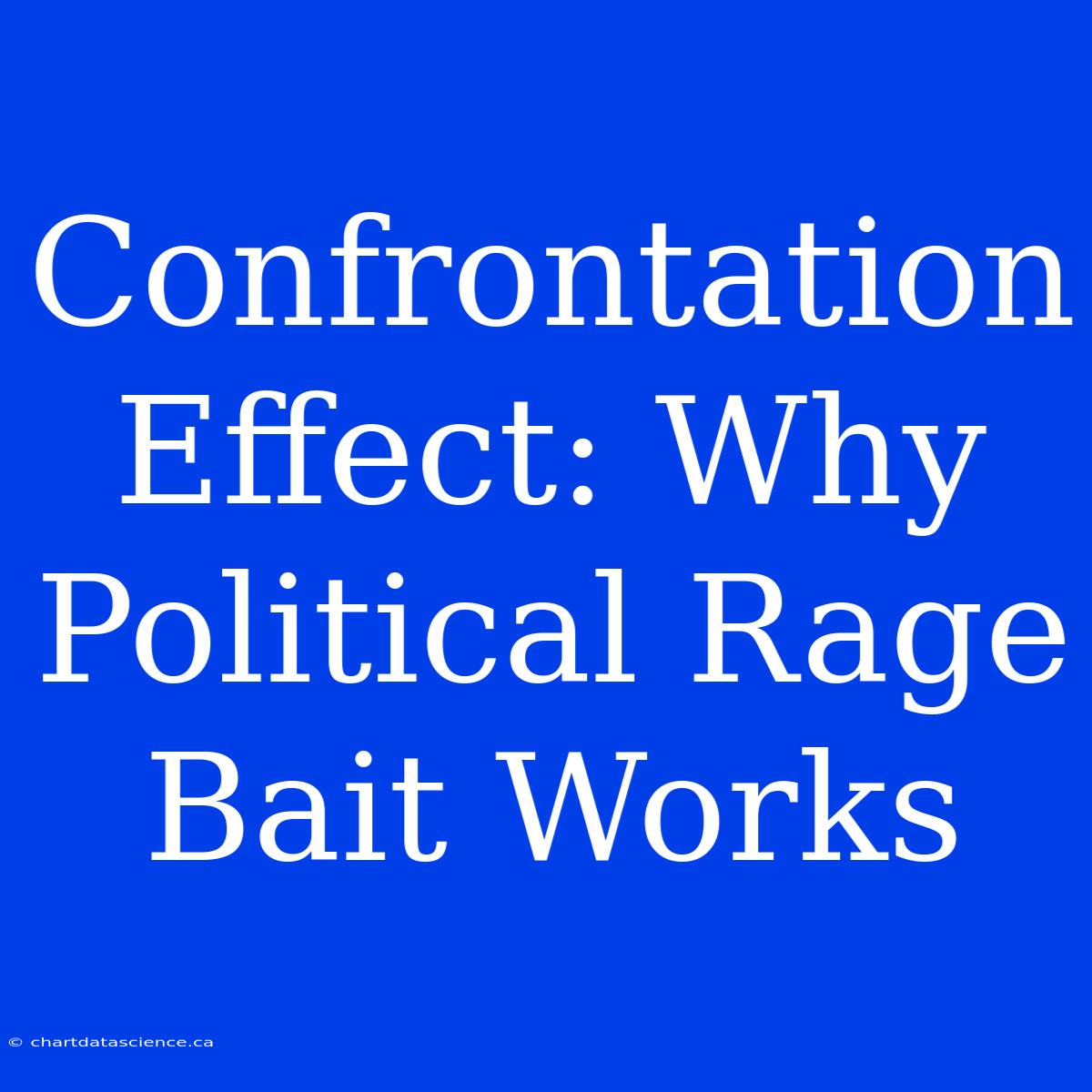Confrontation Effect: Why Political Rage Bait Works
We've all seen it – those inflammatory headlines, those provocative tweets, those emotionally charged videos designed to get us riled up. It's everywhere online, and it's not just about politics. This tactic, often called "rage bait," is a deliberate attempt to trigger strong emotional reactions, and it works surprisingly well. But why?
The answer lies in a psychological phenomenon known as the confrontation effect. This effect states that we're more likely to remember information that provokes an emotional response, especially anger. Think about it – do you remember a time you were calmly presented with a fact? Probably not. But a heated argument, a passionate speech, or a shocking news story? Those stick with you.
This is because anger, while unpleasant, is a powerful motivator. It activates our attention, biases our thinking, and even makes us more likely to share information with others. This makes it a potent tool for spreading information, even if that information is inaccurate, misleading, or outright harmful.
Here's how rage bait works:
- Catchy Headlines: The first step is to grab your attention with a provocative headline. Think things like "Shocking Truth About X," "Y is the Real Enemy," or "Z is Going to Destroy Everything!" These headlines are designed to make you feel angry, curious, or even scared.
- Emotional Content: Once you're hooked, the content itself is designed to keep the emotional fire burning. This can involve biased arguments, exaggerated claims, personal attacks, or even outright lies. The goal is to keep you in a state of emotional agitation.
- Spread and Amplify: This is where social media comes in. The anger you feel fuels your desire to share the content with others, effectively spreading the message further. Each share is like throwing gasoline on the fire, amplifying the impact and making the content even more likely to reach others.
The Consequences of Rage Bait:
- Polarization: Rage bait creates an echo chamber where people are only exposed to information that confirms their existing biases. This can lead to increased polarization and a breakdown in civil discourse.
- Misinformation: By relying on emotional reactions over factual accuracy, rage bait can spread misinformation and harmful stereotypes. This can have real-world consequences, from fueling political unrest to encouraging violence.
- Mental Health: Constant exposure to anger and outrage can take a toll on your mental health. It can contribute to anxiety, depression, and even physical health problems.
What Can We Do?
- Be Aware: The first step to combating rage bait is to be aware of its tactics. Recognize how emotional triggers are used to manipulate your attention and judgment.
- Seek Out Different Perspectives: Don't rely on just one source of information. Make an effort to read articles, watch videos, and listen to podcasts that offer diverse perspectives on the issues.
- Pause Before You Share: Take a moment to think before sharing content that makes you angry. Is it accurate? Is it constructive? Is it worth potentially spreading misinformation or causing harm?
The confrontation effect is a powerful force, and rage bait exploits it masterfully. By understanding how it works and taking steps to protect ourselves, we can combat the spread of misinformation and create a more informed and civil online environment.

